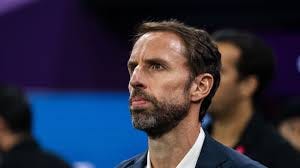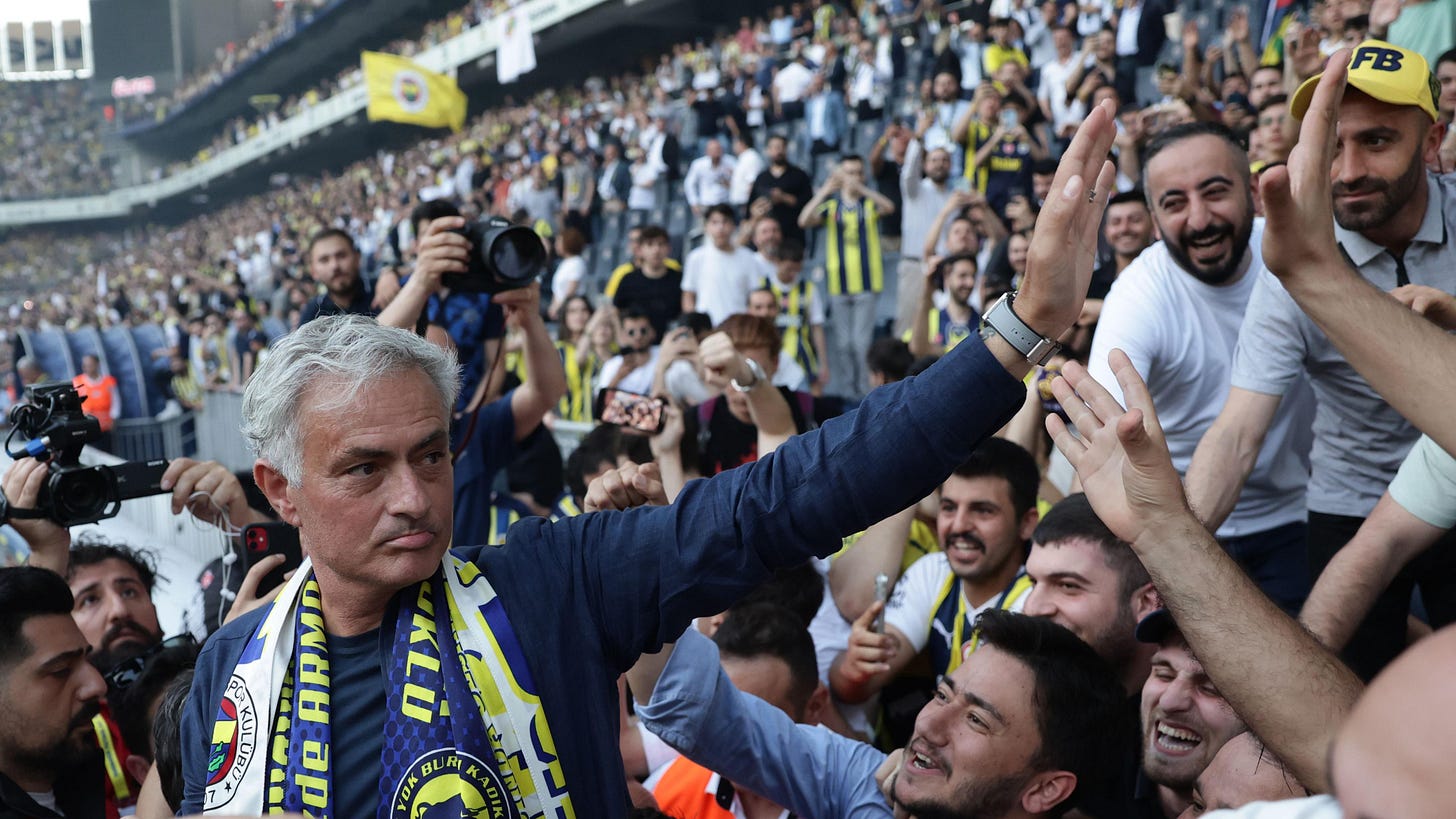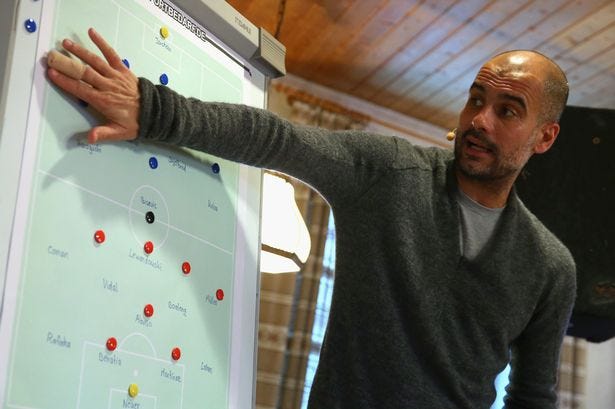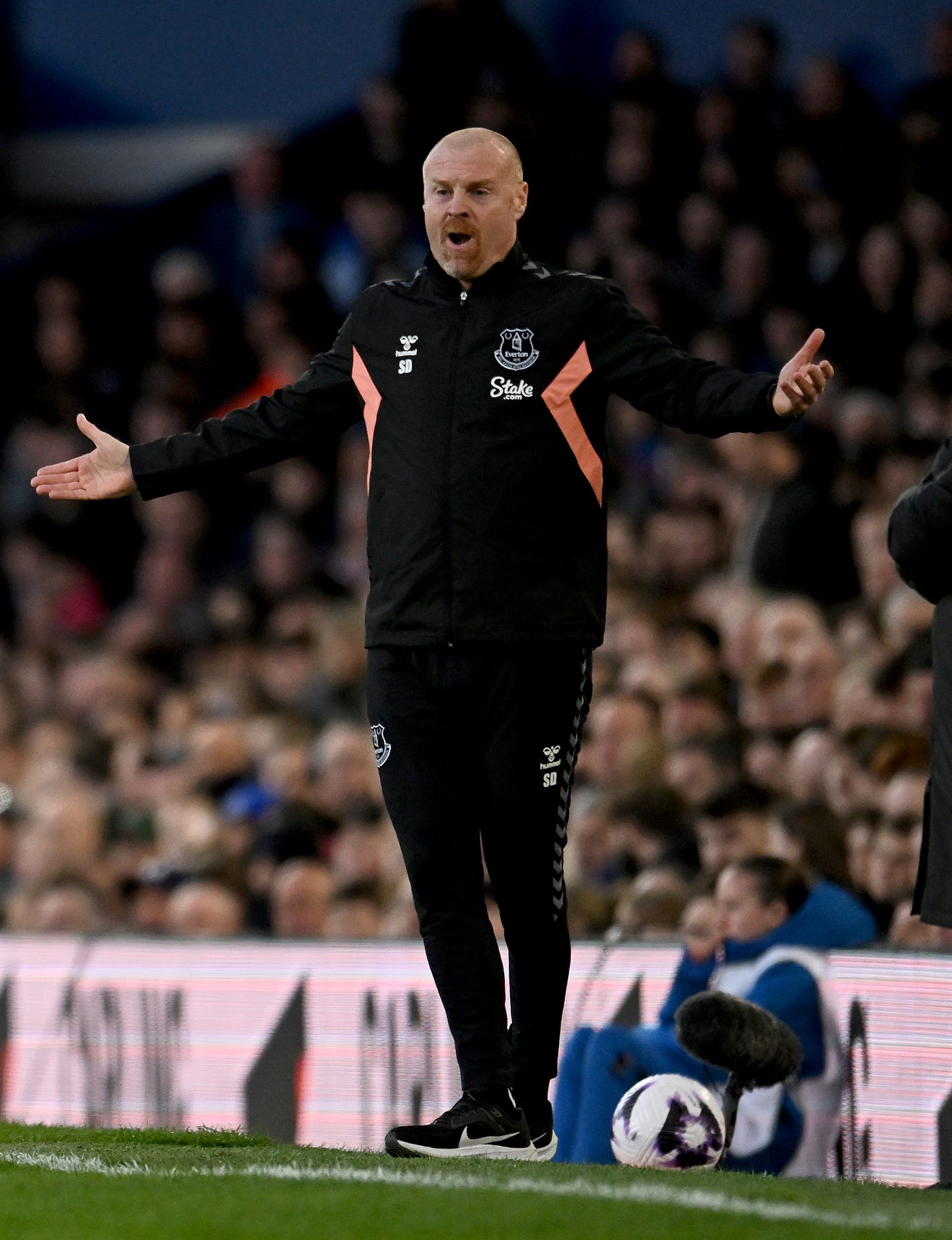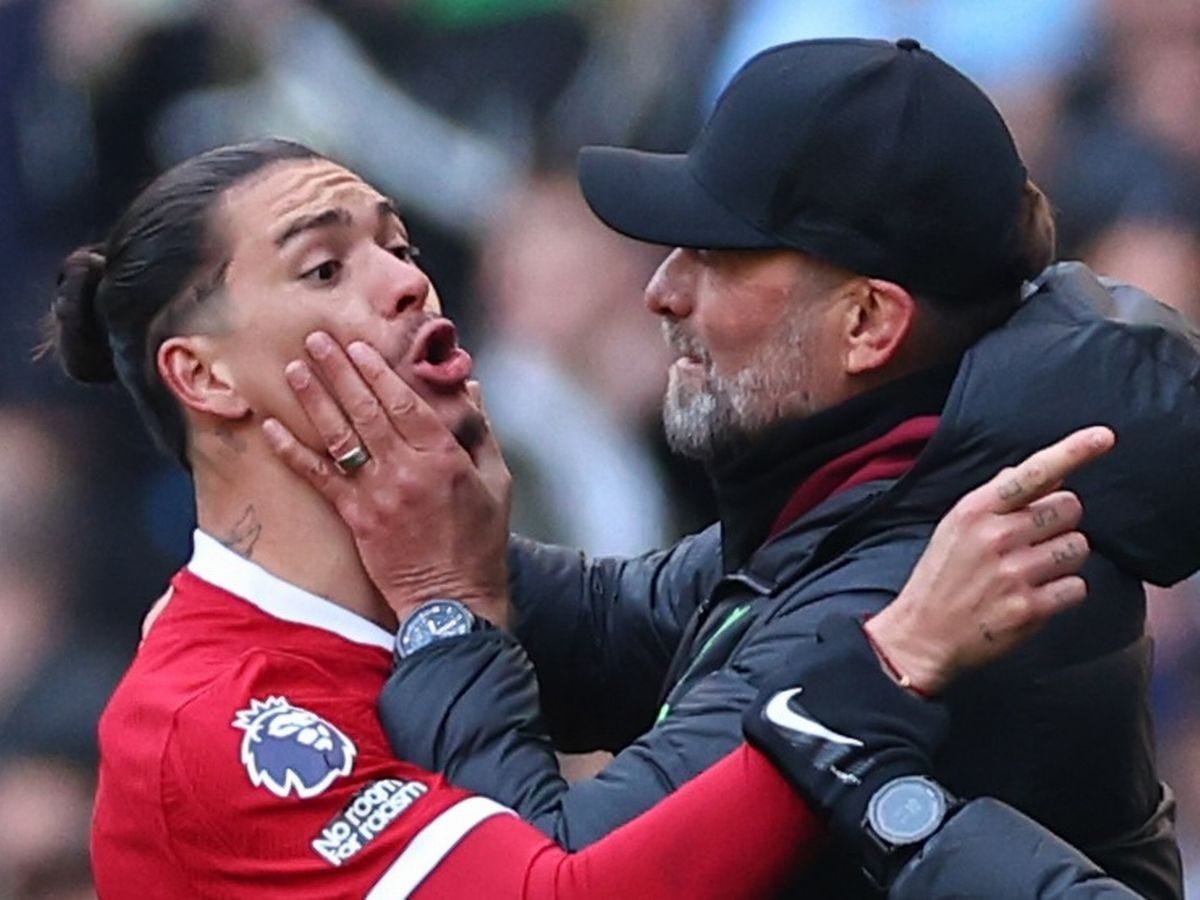A philosophical critique of modern football
Analyzing the great modern football issues through the lens of philosophy
The Neoliberals Neoliberal: a capitalist critique of Gareth Southgate
Gareth Southgate is the logical endpoint of capitalism. His England side is the culmination of an extractive economic model that draws talent from one South London borough to another, melding it together in a brutalist structure that ironically resembles Soviet-era architecture. He is a symbol of the ruling class of our economic model: an empty suit speaking in vague platitudes. His only purpose is to further the aims of capital at the expense of the human soul.
To embrace Southgateismo is to deprive the human experience of an important facet: fun. Much like the arts, education, and the creative spirit are sidelined in favour of economic growth, Southgateismo idealises the maximum amount of suffering for the smallest of gains. He is selling back to you something you’ve already seen in the 1960s and demanding that you enjoy it.
Alone in the world and no home to go to: the footballing anti-revolution of Jose Mourinho
Jose Mourinho is the ultimate example of the individual shaped by the signifier. Jose is a man seen only in mirror images; a xerox of a xerox of a xerox, each copy creating bigger ripples of distotrtion. You start with Rinus Michels – the father of Total Football. Reflect his fluid philosophy and you get Sachismo – total football made lesser by South European inefficiency , but nevertheless still a winning formula. You invert Total Football and you get Catenaccio – total football made mechanic and capitalist. then you reflect the inversion in the reflection: you create a being who can only exist in reference to others. Mourinho is the true nowhere man, without the other characters he reflects, inverts and parodies he has no reason to exist. His identity only comes from what and who he isn’t – without a wider frame of reference he is nothing. He is not his own man. What is Jose but a ploy to gengenpressing, tiki-taka and an existence forged solely to stop the Cruyffian revolution?
Dialectic Defensive Midfielders: a new approach to Guardiola
If there is one concrete example of how Hegelian dialectics works, it is the football of Josep Guardiola. Every pass is a thesis, every opponent's move an antithesis, and every drawn-out 1-0 win the inevitable synthesis. Guardiola is the philosopher-king of the pitch, turning matches into philosophical debates.
You start with Johan Cruyff – the thesis of Total Football. Reflect this through Guardiola’s obsessive lens, and you get the antithesis – control to the point of paralysis. The synthesis? An endless loop of possession so precise it sometimes forgets to score.
Guardiola’s philosophy is a constant Hegelian struggle. Each game is a battle between ideal beauty and real-world tedium. His "innovations" often boil down to sterile dominance, each pass a step towards an abstract football nirvana.
Football isn't just a sport; it's a dialectical dance. We watch teams not just to win, but to resolve the contradictions of the game itself, making every match a highbrow exercise in controlled boredom.
We are all caught in Guardiola’s dialectical web, wondering if we’re seeing the sport’s evolution or just another step in its endless philosophical waltz.
Sisyphean Sean: the hero at the edge of Premier League Banality
The football of Sean Dyche is quite possible humanities last savior against the mundanity of modern life. Each match is an absurd struggle against the indifferent universe of the Premier League. Dyche is the Sisyphean manager, forever rolling the ball up the pitch only to watch it roll back down again, embracing the absurdity with stoic resolve.
In this telling, Dyche assumes the role of Camus’ absurd hero. The individual who finds meaning in the struggle itself. You get a man who thrives in the gritty, often thankless task of survival football. Dyche’s Burnley is the embodiment of Camusian rebellion, fighting against the existential void of relegation with long balls and robust defending.
Dyche’s football philosophy exists in a constant state of absurd defiance. Each hoof up the pitch is a statement against the fluid beauty of the game’s elite, a gritty antithesis to their refined tactics. His teams do not just play to survive; they play to assert their existence in a world that often overlooks them.
In Dyche’s world, football is not just a sport but an absurd theatre where meaning is carved out through relentless effort and unyielding discipline. His teams confront the absurdity of their underdog status with grim determination, finding purpose in the struggle itself.
In search of the footballing Ubermensch: Darwin Nunez
The year 2024 can be seen as a triump of many a footballer: the heroic Jude Bellingham, the samba King Vini Jr, the eternally dominant Toni Kroos, and even the inevitability of Erling Haaland. And yet football is still in search for the new Ubermensch. None of these players have the will to power needed to assume such a mantle. It seems that football has entered into a widening search for our transcendtal player. And yet he has been lurking amongst us this whole time: Darwin Nunez.
Núñez disrupts traditional norms with his dynamic play, blending power and finesse in a way that challenges conventional striker roles.
If you think only of a typical expectation of a forward – focused solely on scoring goals and individual accolades you miss the real story. In Nunez we see a counter-narrative that embraces versatility and unpredictability. His style transcends mere goal-scoring; it's a Nietzschean exploration of personal excellence and the relentless pursuit of footballing greatness.
Núñez’s football philosophy is a constant defiance of standard striker stereotypes. Each run, each powerful strike on goal is a declaration of his will to power on the pitch, reshaping what it means to dominate in the attacking third. His success isn’t just measured in goals but in the audacity to redefine the striker’s role with every match. Instead of diminishing his stature, each empty net miss merely enhances it.
Equipped with the philosopher-king Marcelo Bielsa, Nunez is football made perfect. His empty head the perfect canvas for the great managers to cast their visions.





